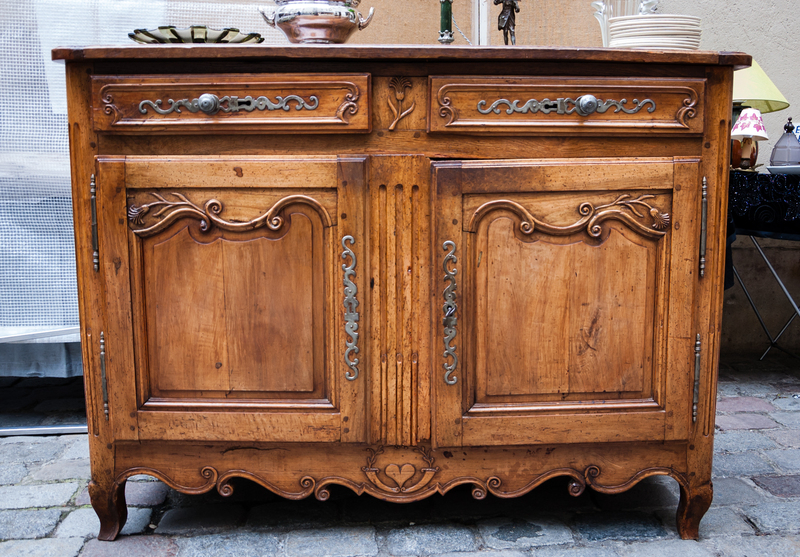How to Recycle Your Outdated Cookware Responsibly
Do you have outdated pots, pans, or bakeware gathering dust in your kitchen cabinets? Many of us accumulate cookware that no longer serves its purpose--whether from wear and tear, scratches, or changes in our cooking needs. Rather than tossing these items in the trash, there are numerous eco-friendly and responsible cookware disposal solutions.
This comprehensive guide explores how to recycle your outdated cookware responsibly, highlighting sustainable options, where to bring old pans, creative reuse, and vital tips to ensure your actions benefit both the planet and your community.
Why Recycle Old Cookware Instead of Disposing?
Recycling and properly disposing of cookware is crucial for several reasons:
- Environmental Conservation: Metals and other materials in cookware take centuries to decompose, contributing to growing landfill waste.
- Resource Reclamation: Cookware is often made from valuable materials, such as stainless steel, aluminum, cast iron, and copper, which can be recovered and reused.
- Pollution Prevention: Improper disposal of non-stick pans can release toxic chemicals into the environment.
- Supporting the Circular Economy: Recycling outdated cookware helps keep valuable metals in circulation and reduces the need for virgin resource extraction.
Responsible old cookware recycling isn't just a green choice--it's a necessary step in reducing your carbon footprint and making your home more sustainable.

Assessing Your Cookware: When Is It Time to Replace?
Before learning how to recycle old cookware responsibly, you need to decide if your items are truly at end-of-life. Ask yourself:
- Is the cookware warped, cracked, or broken?
- Are non-stick surfaces scratched or peeling?
- Is there rust or significant discoloration?
- Can it still be used safely for cooking?
If the answer is no, it's time to explore recycling options for your outdated kitchenware.
Understanding Cookware Materials: Why It Matters for Recycling
Cookware is crafted from various materials, and not all are treated equally when it comes to recycling. Here's a breakdown:
- Stainless Steel: Highly recyclable; most scrap yards and recycling centers accept stainless steel pots and pans.
- Aluminum: Lightweight and easily recycled, though non-stick coatings may complicate the process.
- Cast Iron: Extremely durable and valuable as scrap metal. Acceptable at most metal recycling facilities.
- Copper: Sought after for recycling, but may need to be separated from other materials.
- Non-Stick (Teflon/ceramic): Trickier to recycle due to coatings; never put in regular recycling bins.
- Glass/Ceramic Bakeware: Rarely accepted in curbside recycling but may have alternative recycling options.
An important note: Remove any plastic, rubber, or wooden handles before *recycling pots and pans.* Mixed materials may reduce their recyclability.
Best Ways to Recycle Outdated Pots and Pans Responsibly
1. Metal Recycling Centers and Scrap Yards
Most old cookware recycling happens at metal recycling facilities. Here's how to proceed:
- Clean your pots and pans: Remove food debris and wash thoroughly.
- Separate by material: Split stainless steel, cast iron, and aluminum for easier processing.
- Remove non-metal parts: Recycle plastic/wood pieces separately if possible.
- Contact your nearest recycling center: Confirm which materials they accept and their procedures.
Pro tip: Some centers pay for scrap metal by the pound, so you might even earn a small return!
2. Non-Stick Cookware Recycling Programs
Non-stick cookware (Teflon, ceramic-coated pans) generally should not be mixed in with traditional metal recycling, due to potentially hazardous coatings.
- Check if the pan manufacturer offers a mail-back or take-back program.
- Search for specialty recycling companies that accept Teflon-coated pans.
- If disposal is unavoidable, consult your local waste management for proper procedures--never throw Teflon cookware into regular recycling bins.
3. Municipal Household Waste Facilities
Some local waste centers or city-run transfer stations have designated bins for scrap metal recycling. Contact your local public works or recycling office to find out:
- What types of cookware are accepted
- If appointments are necessary
- Any limits or specific preparation required
4. Donation: Give Cookware a Second Life
Not all "outdated" kitchen tools are useless. If your old cookware is still safe and usable, consider donation as an eco-friendly disposal option:
- Donate to thrift stores, community shelters, or soup kitchens.
- Give to college students or people setting up new homes.
- List on local freecycle groups, Facebook Marketplace, or Craigslist.
Tip: Always clean and inspect items before donating.
5. Creative Upcycling Projects
If your pots and pans are no longer suitable for cooking but too sentimental or unique to discard, try repurposing old cookware for creative home or garden use:
- Planters: Drill a drainage hole in the bottom and transform into a quirky planter.
- Wall Art: Arrange vintage pans on a wall for rustic kitchen decor.
- Pet Bowls: Old stainless pans make durable bowls for pets.
- Storage: Use deep pots for holding tools, utensils, or craft supplies.
Upcycling reduces waste and keeps cherished items in your life a while longer.
What to Avoid: Common Cookware Recycling Mistakes
- Do not place cookware in curbside recycling: Unless your program specifically permits it, metal kitchenware can jam sorting machines.
- Never dispose of coated cookware as scrap metal: Teflon or ceramic can contaminate loads of recyclables.
- Don't ignore safety warnings: Some older non-stick pans may contain PFOA and require special handling.
Tips for Sustainable Cookware Disposal
- Research local programs: Recycling rules vary by location, so consult city or county websites for details.
- Contact manufacturers: Some brands offer trade-in or recycling programs.
- Handle coated pans with care: If recycling isn't possible, ensure proper disposal according to hazardous waste guidelines.
- Educate others: Share your knowledge about responsible recycling of cookware with friends and family.
Frequently Asked Questions About Recycling Old Cookware
Can I put pots and pans in my curbside recycling bin?
Usually, no. Most curbside recycling programs are not equipped for large metal items, and non-stick coatings can contaminate batches. Always check with your municipality before disposing of cookware this way.
What do I do with pans that are coated with Teflon?
Do not include these in regular recycling or scrap metal bins. Look for special programs or contact your local waste disposal for recommendations on how to dispose of non-stick cookware responsibly.
Is there any value in scrap metal from cookware?
Yes! Stainless steel, cast iron, copper, and aluminum are all valuable scrap metals. Your local scrap yard may pay for these items, though the amount will depend on weight and material.
Can glass or ceramic cookware be recycled?
Most curbside recycling and scrap centers do not accept glass or ceramic bakeware. However, some specialized recycling programs or companies, such as TerraCycle, may accept these materials. Repurposing or donating is often the best option.
What if my cookware is in good shape?
If your outdated pots and pans are still safe to use, donation is a meaningful way to help others and keep waste out of landfills.
How to Extend the Life of Your Cookware
While disposing of kitchenware properly is vital, so is making it last! Here are some care tips to extend the lifespan of your pots and pans:
- Hand wash whenever possible: Dishwashers can damage non-stick coatings and warp pans.
- Use the right utensils: Avoid metal utensils on coated pans; use wood or silicone instead.
- Dry thoroughly: Prevent rusting of cast iron and carbon steel.
- Season cast iron: Maintain seasoning for a natural non-stick surface.
- Avoid high heat on non-stick surfaces: Prolongs the life of coatings and prevents toxic fumes.
Worldwide Leaders in Cookware Recycling & Initiatives
Some companies and organizations go above and beyond in promoting responsible cookware recycling. Examples include:
- TerraCycle: Offers recycling solutions for hard-to-recycle items, including non-stick cookware (check for availability in your area).
- GreenPan: Accepts some old pans for recycling with the purchase of new ones (U.S. program).
- Calphalon: Past recycling events have encouraged customers to bring in any brand of cookware for eco-friendly disposal.
- Local Scrap Yards: Many regional businesses actively seek metal cookware for recycling.

Summary: The Eco-Friendly Way to Say Goodbye to Outdated Cookware
Recycling your outdated cookware, such as old pots, pans, and bakeware, is one of the simplest ways to make your kitchen more sustainable.
To recycle your old cookware responsibly:
- Identify the material and research the best recycling route--scrap yard, municipal site, or specialty program.
- Remove non-metal parts and thoroughly clean items before recycling.
- Donate or repurpose if the cookware is still usable.
- Consult manufacturers and local authorities for the safest disposal of coated pans.
Taking these small but significant steps reduces landfill waste, supports resource conservation, and potentially offers new life to your cookware. The next time you clean out your kitchen, remember: with a bit of effort, recycling old pots and pans responsibly can benefit both your home and the environment.
Further Reading and Resources
- EPA - How to Recycle
- TerraCycle Recycling Programs
- Goodwill Industries Donation Guidelines
- Contact your local city or county waste department for regional information on recycling kitchenware responsibly.
Make responsible cookware disposal part of your sustainable kitchen routine today!